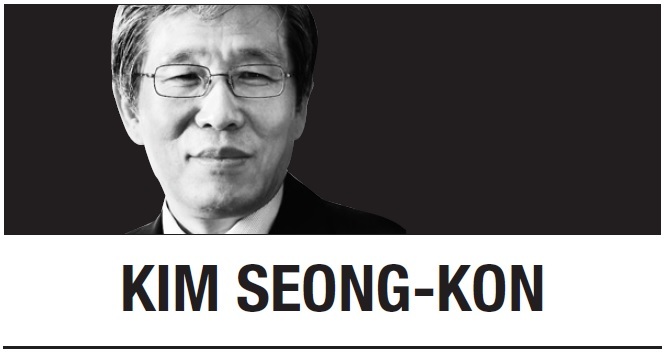
Due to cultural differences, wrong translations of English words into Korean occurs frequently and inevitably. The problem is that such erroneous translations may lead to inaccurate perceptions of other cultures and political systems, at times creating serious misunderstanding.
Many Koreans, for example, know that the United States is comprised of 50 states. Nevertheless, they do not know that a “state” is a “sovereign government,” not a province. The Korean translation of “state,” which is “ju,” has contributed to such a misconception because “ju” implies a “province.” The Korean translation of “governor” as “jisa,” is also wrong, because “jisa” means head of a province rather than a sovereign government. In fact, Americans call the wife of a governor the “first lady” of the state.
Unlike provinces or municipalities, the 50 states that comprise the US are not simply administrative divisions of the federal government. Indeed, each state in America has in addition to federal representatives its own senators and representatives, as well as secretaries, who are like ministers. Each state has its own laws, police, and Supreme Court; in fact, all the laws that are not delegated to the federal government are under the state’s jurisdiction. Unless he is a federal appointee, a judge, a lawyer, or a police officer immediately loses his or her legal status and privileges as soon as entering another state. Therefore, if Korean politicians do not know the unique characteristics of the United States, they are prone to making fatal mistakes in diplomacy.
There are many other egregious examples of mistranslations of English words. Professor Lee O-young points out that the Korean translation of democracy as “minjujueui” is wrong. “Minjujueui” means “democracy-ism,” but “democracy” is not an “-ism”; it is different from ideologies such as communism or capitalism. Rather, democracy is a system, so even a communist country can adopt it, however superficially. Hence, North Korea’s official name is the “Democratic People’s Republic of Korea.” When a totalitarian country dons a mask of democracy, it is of course a so-called “people’s democracy” or mob democracy, not a liberal democracy.
Professor Lee also argues that “gukmin,” the Korean translation of “the people” is incorrect because “gukmin” means the “subjects of a nation,” thereby implying that a nation precedes its people. According to Professor Lee, “minjok,” another Korean translation of the “people,” is equally erroneous because minjok inspires tribalism, not globalism. In a recent column, Michael Breen, an insightful British journalist, has aptly pointed out that for Christians and Muslims, the Bible and the Koran are sacred, respectively; for Americans, the Constitution is no less so; and for Koreans, minjok is sacred. Therefore, if you insult or denigrate minjok in Korea, you are committing a blasphemy.
Koreans’ translation of “nationalism” into “minjokjui” is also wrong because minjokjui means tribalism, not nationalism. “Nation” means a country, that is, “gookga,” not minjok. Therefore, we should translate “nationalism” into “gookgajui.” Indeed, English dictionaries define nationalism as “identification with one’s own nation and support for its interests, especially to the exclusion or detriment of the interests of other nations.”
There is a plethora of other awkward or incorrect translations. For example, the Korean translation of “loyalty” as “chungseong” is too narrow, since Koreans think of “chungseong” as being “loyal to one’s boss, superiors or country,” whereas the English word is much more general. Thus, we should have translated “loyalty” into “uiri,” which means “loyal to everybody.”
The same thing goes for the translation of “friendship.” English-Korean dictionaries translate it as “ujeong,” which means “affection between friends.” The problem is that in Korea you cannot befriend someone who is much younger or older than you are; only similar age groups can be friends. Therefore, Koreans do not think that “friendship” is possible between the young and the old.
We can also find some English words hard to translate correctly. For example, Koreans always translate “lieutenant” into “joongwi,” which means “army lieutenant.” However, since “lieutenant” means the second in command, there could be a police lieutenant or even a mafia lieutenant. Moreover, a US Navy lieutenant is equivalent to an Army captain. In addition, many Koreans do not know that “justice” is an official title for judges in the Supreme Court or Court of Appeals in the US and thus mistranslate it.
Another example of mistranslation is “independent” as in an independent candidate in an election. The Korean translation of this term is “musosok,” which means, “belongs to nowhere.” Yet in English, “independent” very often has positive or at least neutral connotations. In Korean, however, “musosok” implies that the person does not have any belongings, ergo, does not have any power or influence. Indeed, in Korean society, if someone does not belong to a faction or a camp, he is powerless, as nobody watches his back.
The importance of correct translations cannot be overemphasized and so does choosing the right words. Otherwise, we are likely to stumble into many misunderstandings that will jeopardize our otherwise good partnership with English speaking countries.
Kim Seong-kon
Kim Seong-kon is a professor emeritus of English at Seoul National University and a visiting scholar at Dartmouth College. -- Ed.





![[Herald Interview] 'Trump will use tariffs as first line of defense for American manufacturing'](http://res.heraldm.com/phpwas/restmb_idxmake.php?idx=644&simg=/content/image/2024/11/26/20241126050017_0.jpg)

![[Health and care] Getting cancer young: Why cancer isn’t just an older person’s battle](http://res.heraldm.com/phpwas/restmb_idxmake.php?idx=644&simg=/content/image/2024/11/26/20241126050043_0.jpg)
